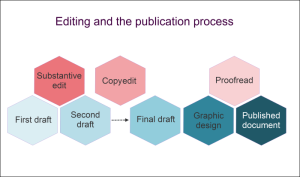
Embark on a journey of mastering project management with our top tips covering essential skills, effective communication, and scope management. Get ready to elevate your project game!
Whether you’re a seasoned pro or just starting out, these insights will take your projects to the next level. Let’s dive in!
Project Management Tips
Effective project management requires a combination of skills, strategies, and communication techniques to ensure successful project completion. Here are some essential project management tips to help you navigate the project management process with ease.
Top 5 Essential Project Management Skills
- Leadership: A project manager should be able to inspire and motivate team members to achieve project goals.
- Communication: Clear and effective communication is key to keeping team members and stakeholders informed and engaged.
- Time Management: Prioritizing tasks, setting deadlines, and managing time effectively is crucial for project success.
- Problem-solving: The ability to identify and address issues as they arise is essential for overcoming project challenges.
- Adaptability: Being able to adjust to changing circumstances and unexpected obstacles is vital in project management.
The Importance of Creating a Detailed Project Plan
Creating a detailed project plan is the foundation of successful project management. A project plan Artikels the scope, objectives, timeline, resources, and deliverables of a project. It helps clarify project goals, allocate resources efficiently, and track progress effectively.
Effective Communication with Team Members and Stakeholders
- Establish clear channels of communication: Regular team meetings, status updates, and progress reports help keep everyone on the same page.
- Active listening: Encourage open communication and feedback to ensure that everyone’s ideas and concerns are heard and addressed.
- Use collaboration tools: Leveraging project management tools and software can streamline communication and collaboration among team members.
Tips on Managing Project Scope and Preventing Scope Creep
- Define project scope: Clearly Artikel project objectives, deliverables, and requirements to avoid ambiguity and prevent scope creep.
- Set boundaries: Establish project boundaries and communicate them to team members and stakeholders to prevent unnecessary changes or additions to the project scope.
- Monitor progress: Regularly review project scope and track changes to identify potential scope creep early on and address them proactively.
Employment and Work in Project Management
In the field of project management, there are various roles and responsibilities within a project management team that contribute to the successful completion of projects. Whether working as an employee or a freelancer, individuals play a crucial role in ensuring that projects are delivered on time and within budget.
Typical Roles and Responsibilities within a Project Management Team
- Project Manager: Oversees the entire project, sets goals, allocates resources, and ensures project completion.
- Project Coordinator: Assists the project manager in planning, organizing, and executing project tasks.
- Team Members: Execute specific project tasks, collaborate with team members, and provide regular updates on progress.
- Stakeholders: Individuals or groups with an interest in the project, whose input and feedback are essential for project success.
Advantages and Disadvantages of Working in Project Management
- Employee:
- Advantages: Job security, benefits, professional development opportunities.
- Disadvantages: Limited flexibility, potential for office politics, less control over project selection.
- Freelancer:
- Advantages: Flexibility, higher earning potential, ability to choose projects.
- Disadvantages: Inconsistent income, lack of benefits, need to manage self-employment taxes.
Tips to Advance Your Career in Project Management
- Continuous Learning: Stay updated with industry trends, tools, and methodologies.
- Networking: Build relationships with industry professionals to explore new opportunities.
- Seek Leadership Roles: Take on challenging projects and showcase your leadership skills.
- Get Certified: Pursue certifications like PMP (Project Management Professional) to enhance your credentials.
Importance of Certifications like PMP in Enhancing Job Prospects
Certifications like PMP are highly valued in the project management field as they demonstrate a strong understanding of project management principles and best practices. Employers often prefer candidates with certifications, as they provide assurance of a certain level of knowledge and expertise. Holding a PMP certification can open up new job opportunities, increase earning potential, and help professionals stand out in a competitive job market.
Business Management Strategies for Projects

Project management plays a crucial role in aligning with broader business goals and strategies by ensuring that projects are executed efficiently and effectively to achieve desired outcomes. Let’s delve into how project management fosters innovation, growth, and success within a business.
Role of Project Management in Fostering Innovation and Growth
- Project management encourages a culture of creativity and collaboration among team members, leading to the development of innovative solutions to complex problems.
- By effectively managing resources, timelines, and budgets, project management enables businesses to seize new opportunities and adapt to market changes swiftly.
- Through strategic planning and risk management, project management helps businesses identify and capitalize on potential growth areas while minimizing potential pitfalls.
Successful Project Management Strategies Implemented by Leading Businesses
- Apple’s product development process, led by meticulous project management, has resulted in groundbreaking innovations like the iPhone and iPad.
- Amazon’s strategic approach to project management has enabled the company to expand its operations globally and diversify its offerings, driving significant growth.
- Google’s agile project management methodology has been instrumental in fostering a culture of continuous improvement and innovation across its various business units.
Impact of Effective Project Management on Overall Business Performance
- Businesses that prioritize effective project management experience improved efficiency, productivity, and customer satisfaction, leading to enhanced overall performance.
- Well-executed project management ensures that projects are completed on time, within budget, and meet quality standards, ultimately contributing to increased profitability.
- By aligning project outcomes with strategic business objectives, effective project management drives sustainable growth and competitive advantage in the marketplace.
Publishing and Printing Projects in Project Management
In the publishing and printing industry, managing projects comes with unique challenges and considerations that require careful coordination and attention to detail. From working with authors and editors to collaborating with designers and printers, project managers must ensure seamless communication and efficient workflows to deliver high-quality publications on time.
Coordinating with Stakeholders
- Establish clear communication channels with authors, editors, designers, and printers to ensure everyone is aligned on project goals and timelines.
- Regularly update stakeholders on the project progress and address any concerns or issues promptly to avoid delays.
- Create a detailed project plan outlining the roles and responsibilities of each stakeholder to maintain accountability and streamline workflows.
Importance of Timelines and Quality Control
- Set realistic deadlines for each phase of the project to ensure that all tasks are completed on time and within budget.
- Implement quality control measures to review and approve content, designs, and prints at each stage of the project to maintain high standards.
- Regularly monitor project milestones and adjust timelines as needed to address any issues or changes in scope.
Successful Project Management Approaches
- Utilize project management software to track progress, assign tasks, and communicate with team members and stakeholders effectively.
- Implement agile project management methodologies to adapt to changing requirements and deliver projects in a dynamic environment.
- Collaborate closely with vendors and suppliers to ensure timely delivery of materials and resources for printing projects.
Telecommunications Projects and Project Management

In the fast-paced world of telecommunications, managing projects efficiently is crucial to meet the demands of ever-evolving technology and customer needs. Let’s delve into the specific project management methodologies commonly used in the telecommunications industry and how to navigate the complexities of these projects.
Common Project Management Methodologies in Telecommunications
- Agile Methodology: This iterative approach allows for flexibility and adaptability to changes, which is essential in the dynamic telecommunications sector.
- Waterfall Methodology: This sequential approach is used for projects with well-defined requirements and is suitable for certain aspects of telecommunications projects.
- PRINCE2 (Projects IN Controlled Environments): This structured method provides a framework for managing projects effectively, ensuring clear roles and responsibilities.
Managing Complex Telecommunications Projects
- Engage Stakeholders: Communicate effectively with all stakeholders, including technical teams, regulators, vendors, and customers, to ensure alignment and collaboration.
- Clear Requirements: Define and prioritize project requirements to manage technical complexities and ensure successful project delivery.
- Project Phases: Break down the project into manageable phases with specific deliverables to monitor progress and address challenges effectively.
Role of Risk Management in Telecommunications Projects
- Identify Risks: Conduct a thorough risk assessment to identify potential risks related to technology, regulations, market changes, and other factors impacting the project.
- Mitigate Risks: Develop risk mitigation strategies to minimize the impact of potential threats and uncertainties on project outcomes.
- Monitor Risks: Continuously monitor and evaluate risks throughout the project lifecycle to proactively address emerging issues and ensure project success.
Efficient Resource Allocation and Budgeting in Telecommunications Projects
- Resource Planning: Allocate resources effectively based on project requirements, considering the availability and expertise of team members to optimize project performance.
- Budget Management: Develop a detailed budget plan that accounts for all project expenses, including equipment, software, personnel, and contingency funds to avoid cost overruns.
- Track Expenses: Monitor project expenses regularly to ensure adherence to the budget plan and make adjustments as needed to maintain financial control.
Concluding Remarks
In a nutshell, mastering project management is about honing essential skills, communicating effectively, and keeping a tight grip on project scope. With these tips in your arsenal, you’re set for success in any project you undertake. Happy managing!
Essential Questionnaire
What are the top 5 essential project management skills?
The top 5 essential project management skills are leadership, communication, time management, risk management, and problem-solving.
How can I prevent scope creep in my projects?
To prevent scope creep, ensure a detailed project plan is in place, regularly communicate with stakeholders, and clearly define project scope boundaries.
What certifications are beneficial for advancing in project management?
Certifications like PMP (Project Management Professional) can greatly enhance your job prospects and credibility in the field of project management.







